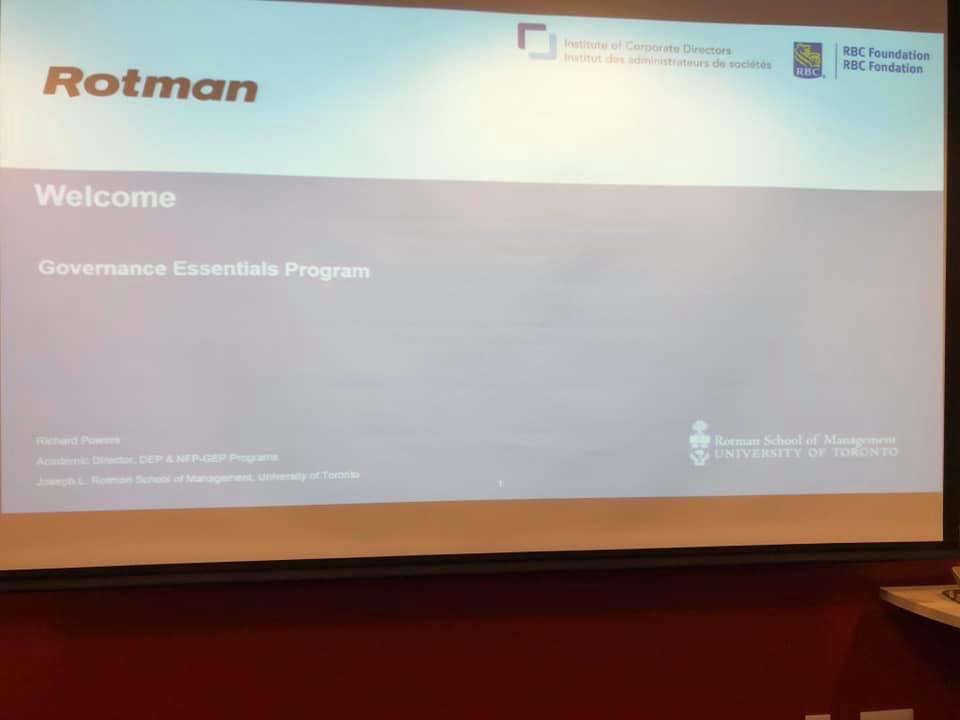In October 2019, I had the unique opportunity to attend the Institute of Corporate Directors (NFP) “Not-For-Profit Governance Essentials” program, a two day course developed by the Institute of Corporate Directors and the University of Toronto’s Rotman School of Business.
I would like to highlight a few key highlights that were covered and continue to resonate for me in my role as a board member.
Overview
According to Imagine Canada 2017 (http://www.imaginecanada.ca), there are an estimated 170,000 non-profits and charity organizations in Canada and the sector controls over $112B in annual revenues or 8.1% of GDP. It employs 2 million people and has over 13 millions volunteers.
The program focused on the key accountabilities and responsibilities required of leaders at non-profit organizations. The program included topics about Director Duties, Roles and Potential Liabilities; Boardroom Diversity; Boardroom Decisions; NFP Characteristics; Governance Best Practices, Management principles to elevate effectiveness and a review of Fiduciary duties.
Governance Models
The course material suggested usually there are three models of governance:
- Traditional
- Policy-Based
- Results Orientated
The latter form which best describes most modern NFP organizations. The characteristics of results oriented boards are:
- Vision-driven
- Board works with CEO to set the direction of organization
- CEO leads and actively engages the board in the planning process
- Committees are based on board responsibilities and expertise
- Board members evaluate and monitors the performance of the board, CEO and organization
Duties and Roles of the Board
A significant portion of the course was spent on reviewing the roles and duties of a modern board. The primary importance of a board is its fiduciary role to: “Act honestly and in good faith with a view to the best interest and sustainability of the organization.” Each board member has the responsibility to subscribe to and support the purposes of the organization (rather than the shareholder or its substitute).
Conflict of Interest
Conflicts of interests are bound to arise at some point and are not in themselves a necessary of concern. It is the matter with which a conflict of interest is dealt that is of significant. If any board member thinks that there is a conflict, it should be disclosed to the board either verbally or in writing. It is then recommended that the member should then not participate in discussions and should consider recusing themselves. Finally, any such actions should be recorded in the minutes of the meetings.



